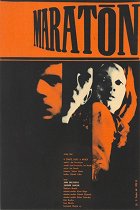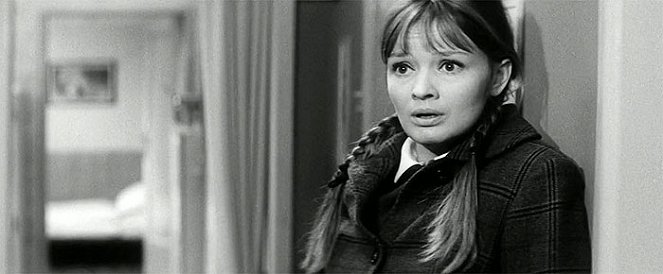Regie:
Ivo NovákKamera:
Walter HanuschMusik:
Zdeněk LiškaBesetzung:
Jaromír Hanzlík, Jana Brechova, Vladimír Menšík, Karel Höger, Zdeněk Štěpánek, Petr Kostka, Bohuš Záhorský, Ivan Mistrík, Svatopluk Matyáš (mehr)Kritiken (2)
The creators of The Marathon apparently had a philosophy of giving us 2-in-1 when they offered two parallel stories from the last days of the war. Never mind that they didn't really fit together and both felt like they were directed by a different director and crew. The story of a young prisoner freed from prison, who manages to participate in the defense of Prague with a weapon during the four-day May uprising and find his fateful love, at least somewhat fits into the picture of Czech cinema of the 1960s, which relies on acting performances and the intimacy of the moment. The second storyline shows the victorious Soviet army "rushing to help Prague," and this storyline clearly has a propagandistic dimension and fits the face of the normalized cinema of the 1970s. Pathos, the tragedy of human sacrifice at the end of the war, the smiling faces of tired Soviet soldiers, and an endless column of military technology of the victorious army. It's transparent, and it doesn't offend me anymore because a film, no matter what it is, can at least humanize the face of the opponent and bring a smile to one's face in some scenes. On the other hand, this film definitely does not inspire any admiration from me. A great, or rather profound, film is something completely different and evokes different emotions. Overall impression: 50%.
()
Die feschen, höflichen und lächelnden Soldaten der Roten Armee werde ich mal jetzt nicht kommentieren, weil sie nicht die Hauptfiguren des Films The Marathon sind. Die wichtigsten Figuren sind das tolle Paar Jaromír Hanzlík und Jana Brejchová, zwei junge Menschen, die durch die Prager Straßen voller Aufständischer laufen und einen schweren Koffer schleppen. Jeder nimmt die Revolution anders wahr. Es hat mir gefallen, sie zu beobachten. Sie sind entschlossen, witzig, aber auch erschrocken. Ich habe ihnen alles geglaubt. Der zweite Teil des Films, der Kriegsteil mit den Panzern, Explosionen, Abrissen und Schießereien hat mir aber auch gefallen. Die Ausstattung ist großzügig, die Kämpfe solide aufgenommen. Sie haben auch die erforderliche Stimmung. Hier und da sieht man in ihnen ein bekanntes Gesicht, das manchmal einen Satz sagt (Svatopluk Beneš), manchmal zwei Sätze (Bohuš Záhorský). Und manchmal handelt es sich um eine vollwertige Rolle mit allem Drum und Dran (der fantastische Karel Höger und natürlich Vladimír Menšík). Ich würde diesen Film bestimmt nicht verdammen.
()

